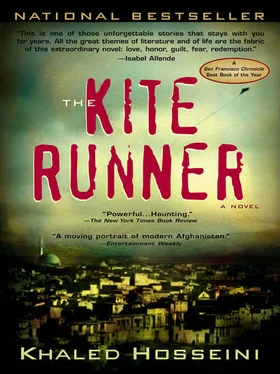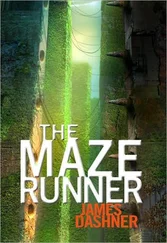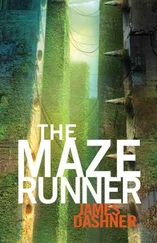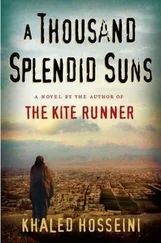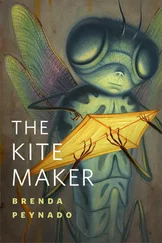After three days in the ICU, they withdrew the breathing tube and transferred him to a ground-level bed. I wasn’t there when they moved him. I had gone back to the hotel that night to get some sleep and ended up tossing around in bed all night. In the morning, I tried to not look at the bathtub. It was clean now, someone had wiped off the blood, spread new floor mats on the floor, and scrubbed the walls. But I couldn’t stop myself from sitting on its cool, porcelain edge. I pictured Sohrab filling it with warm water. Saw him undressing. Saw him twisting the razor handle and opening the twin safety latches on the head, sliding the blade out, holding it between his thumb and forefinger. I pictured him lowering himself into the water, lying there for a while, his eyes closed. I wondered what his last thought had been as he had raised the blade and brought it down.
I was exiting the lobby when the hotel manager, Mr. Fayyaz, caught up with me. “I am very sorry for you,” he said, “but I am asking for you to leave my hotel, please. This is bad for my business, very bad.”
I told him I understood and I checked out. He didn’t charge me for the three days I’d spent at the hospital. Waiting for a cab outside the hotel lobby, I thought about what Mr. Fayyaz had said to me that night we’d gone looking for Sohrab: The thing about you Afghanis is that… well, you people are a little reckless . I had laughed at him, but now I wondered. Had I actually gone to sleep after I had given Sohrab the news he feared most?
When I got in the cab, I asked the driver if he knew any Persian bookstores. He said there was one a couple of kilometers south. We stopped there on the way to the hospital.
SOHRAB’S NEW ROOM had cream-colored walls, chipped, dark gray moldings, and glazed tiles that might have once been white. He shared the room with a teenaged Punjabi boy who, I later learned from one of the nurses, had broken his leg when he had slipped off the roof of a moving bus. His leg was in a cast, raised and held by tongs strapped to several weights.
Sohrab’s bed was next to the window, the lower half lit by the late-morning sunlight streaming through the rectangular panes. A uniformed security guard was standing at the window, munching on cooked watermelon seeds – Sohrab was under twenty-four-hours-a-day suicide watch. Hospital protocol, Dr. Nawaz had informed me. The guard tipped his hat when he saw me and left the room.
Sohrab was wearing short-sleeved hospital pajamas and lying on his back, blanket pulled to his chest, face turned to the window. I thought he was sleeping, but when I scooted a chair up to his bed his eyelids fluttered and opened. He looked at me, then looked away. He was so pale, even with all the blood they had given him, and there was a large purple bruise in the crease of his right arm.
“How are you?” I said.
He didn’t answer. He was looking through the window at a fenced-in sandbox and swing set in the hospital garden. There was an arch-shaped trellis near the playground, in the shadow of a row of hibiscus trees, a few green vines climbing up the timber lattice. A handful of kids were playing with buckets and pails in the sandbox. The sky was a cloudless blue that day, and I saw a tiny jet leaving behind twin white trails. I turned back to Sohrab. “I spoke to Dr. Nawaz a few minutes ago and he thinks you’ll be discharged in a couple of days. That’s good news, nay?”
Again I was met by silence. The Punjabi boy at the other end of the room stirred in his sleep and moaned something. “I like your room,” I said, trying not to look at Sohrab’s bandaged wrists. “It’s bright, and you have a view.” Silence. A few more awkward minutes passed, and a light sweat formed on my brow, my upper lip. I pointed to the untouched bowl of green pea aush on his nightstand, the unused plastic spoon. “You should try to eat something. Gain your quwat back, your strength. Do you want me to help you?”
He held my glance, then looked away, his face set like stone. His eyes were still lightless, I saw, vacant, the way I had found them when I had pulled him out of the bathtub. I reached into the paper bag between my feet and took out the used copy of the Shahnamah I had bought at the Persian bookstore. I turned the cover so it faced Sohrab. “I used to read this to your father when we were children. We’d go up the hill by our house and sit beneath the pomegranate…” I trailed off. Sohrab was looking through the window again. I forced a smile. “Your father’s favorite was the story of Rostam and Sohrab and that’s how you got your name, I know you know that.” I paused, feeling a bit like an idiot. “Anyway, he said in his letter that it was your favorite too, so I thought I’d read you some of it. Would you like that?”
Sohrab closed his eyes. Covered them with his arm, the one with the bruise.
I flipped to the page I had bent in the taxicab. “Here we go,” I said, wondering for the first time what thoughts had passed through Hassan’s head when he had finally read the Shahnamah for himself and discovered that I had deceived him all those times. I cleared my throat and read. “ ‘Give ear unto the combat of Sohrab against Rostam, though it be a tale replete with tears,’ ” I began. “ ‘It came about that on a certain day Rostam rose from his couch and his mind was filled with forebodings. He bethought him…’ ” I read him most of chapter 1, up to the part where the young warrior Sohrab comes to his mother, Tahmineh, the princess of Samengan, and demands to know the identity of his father. I closed the book. “Do you want me to go on? There are battles coming up, remember? Sohrab leading his army to the White Castle in Iran? Should I read on?”
He shook his head slowly. I dropped the book back in the paper bag. “That’s fine,” I said, encouraged that he had responded at all. “Maybe we can continue tomorrow. How do you feel?”
Sohrab’s mouth opened and a hoarse sound came out. Dr. Nawaz had told me that would happen, on account of the breathing tube they had slid through his vocal cords. He licked his lips and tried again. “Tired.”
“I know. Dr. Nawaz said that was to be expected-”
He was shaking his head.
“What, Sohrab?”
He winced when he spoke again in that husky voice, barely above a whisper. “Tired of everything.”
I sighed and slumped in my chair. There was a band of sunlight on the bed between us, and, for just a moment, the ashen gray face looking at me from the other side of it was a dead ringer for Hassan’s, not the Hassan I played marbles with until the mullah belted out the evening azan and Ali called us home, not the Hassan I chased down our hill as the sun dipped behind clay rooftops in the west, but the Hassan I saw alive for the last time, dragging his belongings behind Ali in a warm summer downpour, stuffing them in the trunk of Baba’s car while I watched through the rain-soaked window of my room.
He gave a slow shake of his head. “Tired of everything,” he repeated.
“What can I do, Sohrab? Please tell me.”
“I want-” he began. He winced again and brought his hand to his throat as if to clear whatever was blocking his voice. My eyes were drawn again to his wrist wrapped tightly with white gauze bandages. “I want my old life back,” he breathed.
“Oh, Sohrab.”
“I want Father and Mother jan. I want Sasa. I want to play with Rahim Khan sahib in the garden. I want to live in our house again.” He dragged his forearm across his eyes. “I want my old life back.”
I didn’t know what to say, where to look, so I gazed down at my hands. Your old life , I thought. My old life too. I played in the same yard, Sohrab. I lived in the same house. But the grass is dead and a stranger’s jeep is parked in the driveway of our house, pissing oil all over the asphalt. Our old life is gone, Sohrab, and everyone in it is either dead or dying. It’s just you and me now. Just you and me .
Читать дальше
